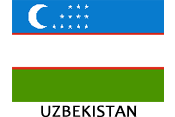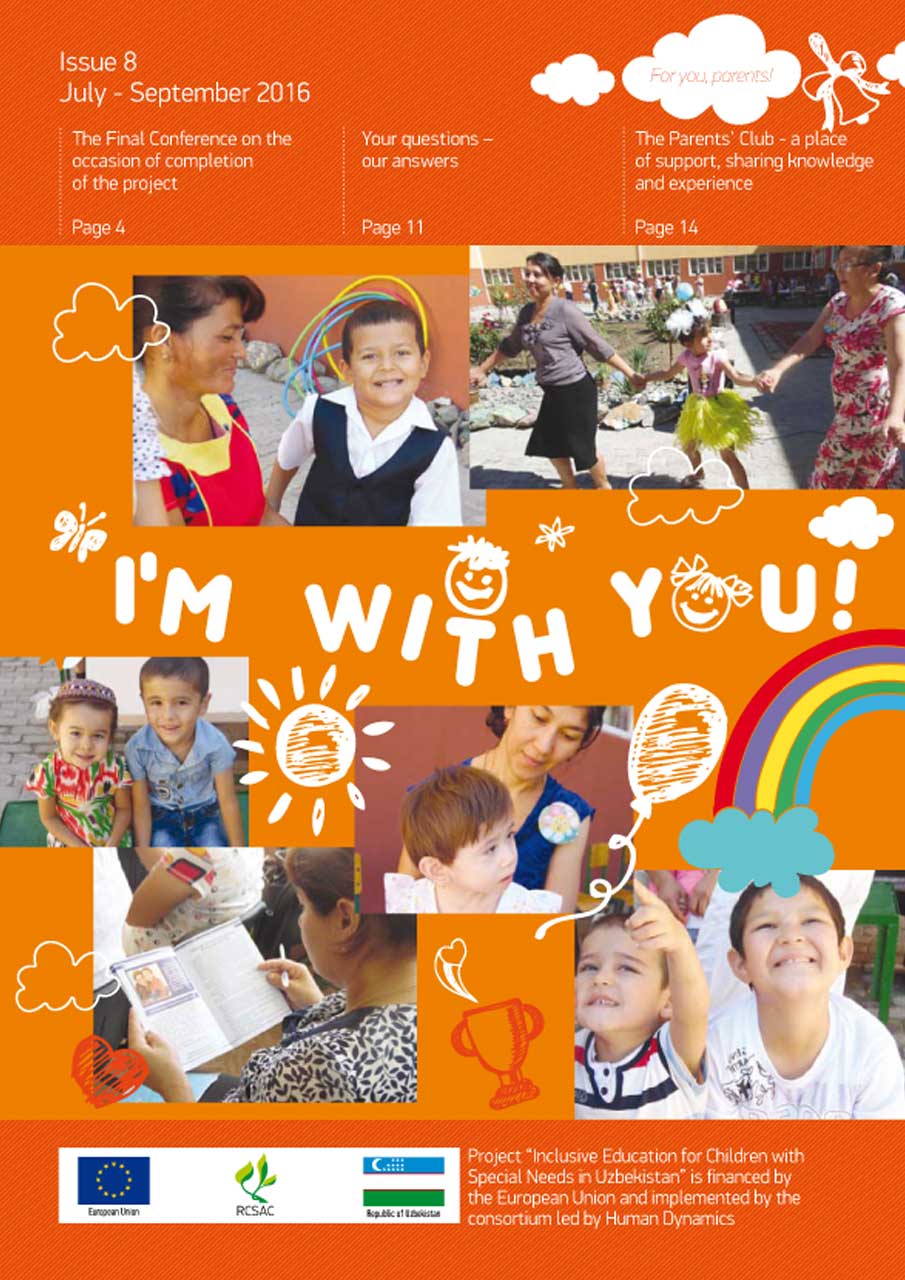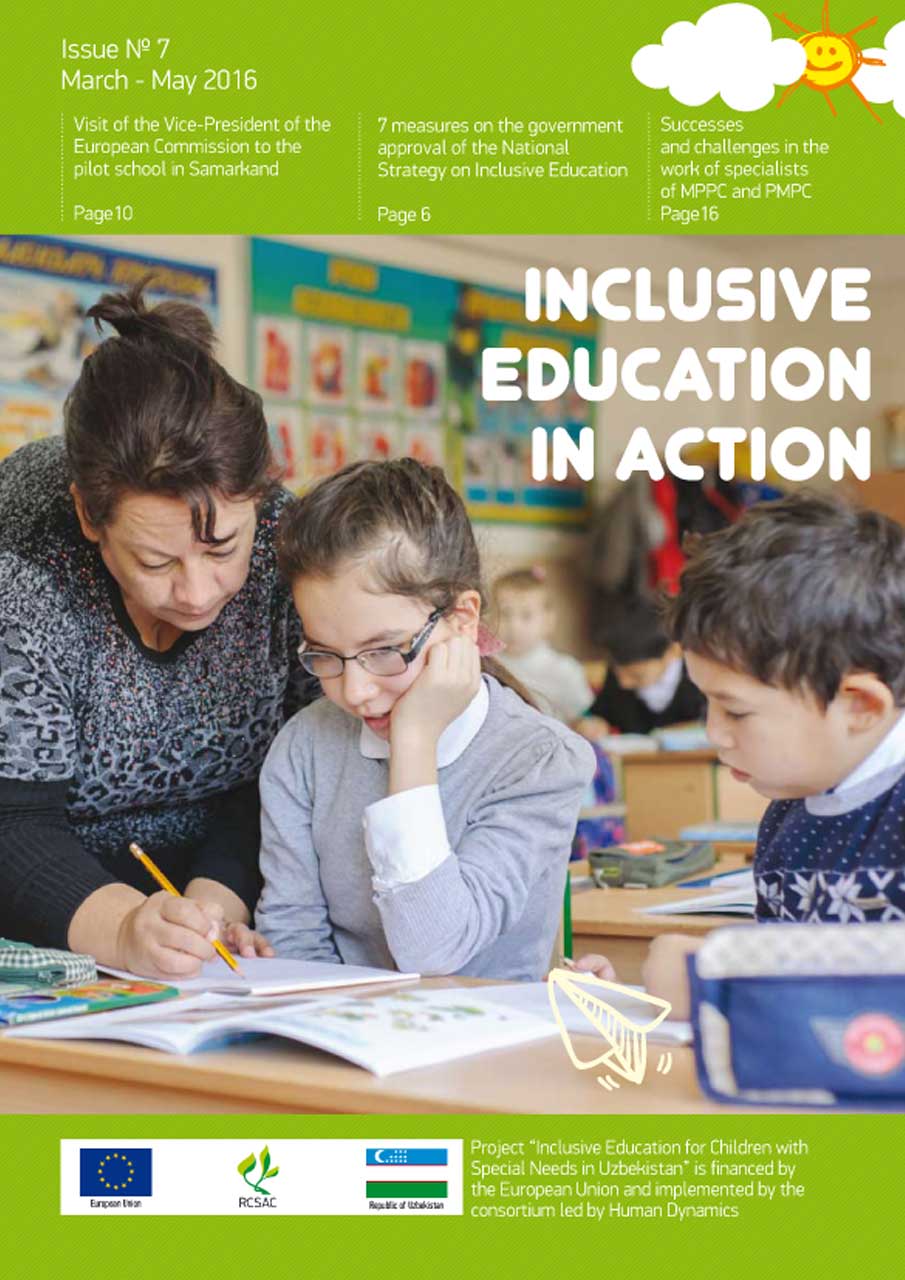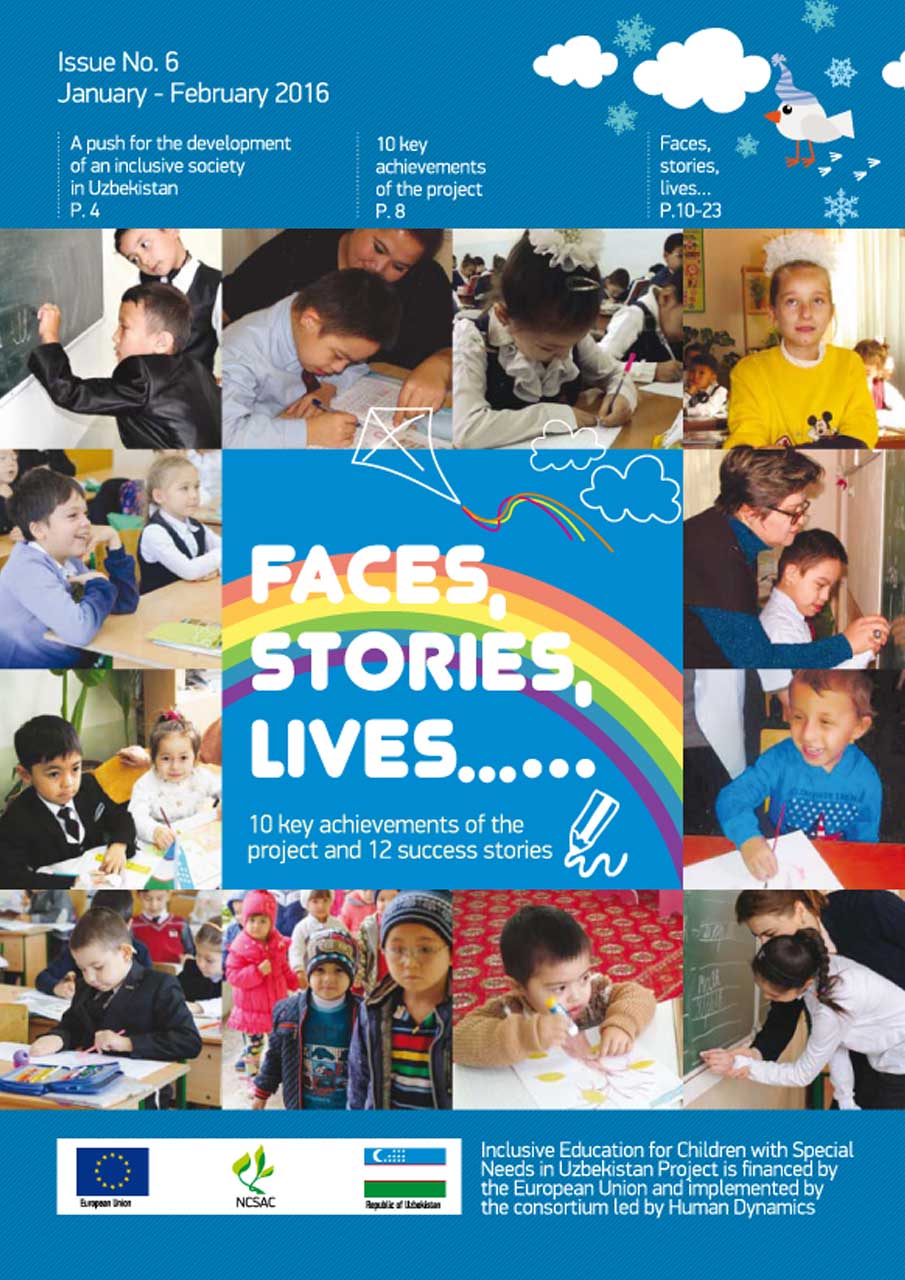A push for the development of an inclusive society in Uzbekistan
An interview with the head of the National Center for Social Adaptation of Children (NCSAC) Alimova Vasila Sattarovna – the primary beneficiary of the project.
– How did the project idea emerge? The project «Inclusive Education for Children with Special Needs in Uzbekistan» originated under the initiative of the NCSAC in 2010. Ever since its founding NCSAC always worked in close collaboration with the Ministry of Public Education and the Ministry of Health, and, of course, all issues relating to social integration and protection of health were solved together. From the very beginning, a Public Council was established, which included the leading experts from line ministries.
Being a public organization, NCSAC managed to create a team of specialists, or a coalition that works towards the social inclusion of children. Integrating the interests of all ministries, and taking into account their areas of activity and specifics, we then deliver all of the information to the public via all branches throughout the country. Despite the fact that NCSAC is the primary beneficiary of the project, the project is implemented in direct and close coordination with the Ministries of Public Education, Health, Labor and Social Welfare, Higher and Secondary Special Education and Finance.
– What impact did the project have on the work of NCSAC and introduction of inclusive education in Uzbekistan? – First of all, the project advanced several steps ahead NCSAC’s activities in terms of ensuring the rights of children with special needs. Of course, we have done this work in the past, but the project proved to be a powerful impetus to the further advancement of our activity. Secondly, the project provided the opportunity to improve the skills and the level of knowledge of the specialists not only at ministries and departments, but also at NCSAC.
Working in the framework of the project, our staff, by studying the experience of other countries, acquiring the skills of inclusive practices, we can say that they tripled their knowledge in the field of inclusive education. Thirdly, it is the approach to inclusive education. We know that there is no single approach to inclusive education in the world. Every country has its own approach, and thanks to the project, we obtained a huge amount of information. Positive experience and lessons learned of any country are always useful; as the expression goes, it is easier to learn from others' mistakes.
It was very important for us to know how some aspects of inclusive education can lead to problems. When we, together with the specialists of the involved ministries and departments, developed the framework and the approach to the development of inclusive education in Uzbekistan, we, certainly, took into account all of these factors, as well as our internal aspects – the mentality, lifestyle, education and healthcare system, etc. Based on all these factors, we tried to develop a model that would be effective in the conditions of Uzbekistan.
And, of course, most importantly, we were able to deeply analyze the existing legal framework in the field of inclusive education. We found that Uzbekistan’s legislation has many strong sides, but at the same time, we realized where and what still needed to be improved so that inclusive education starts working, so that conditions are created for parents and children with special needs in order for them to receive qualified education. In the framework of the project, we were able to introduce a course on inclusive education for university students, develop the National Strategy for Inclusive Education for 2015-2017, as well as a number of other documents relating to ensuring the rights of children.
Of course, this was possible thanks to the support of international and national experts. Emphasis must be placed on the fact that it was a team effort. None of the involved ministries remained on the sidelines; all of them were involved in the work. There is another important point. Thanks to the work on raising awareness among the public, parents, teachers, and professionals, the awareness in this field has improved. The primary indicator of this is the increase in the number of requests by parents to the resource centers, NCSAC branches and the Ministry of Public Education for advice or assistance with enrolment of their children in educational institutions.
And this demand is growing day after day all over Uzbekistan. You will not believe, but even with my own family I had to carry out explanatory work, and I believe, by that I made my own contribution to increasing awareness of the public. One day, returning from a trip by a train, I saw a movie that demonstrates the issue of inclusion, which pleased me very much. I am sure that the awareness of parents and specialists will continue to grow year after year, if the course on inclusive education works out the way we plan in the course of training university students, then the issue will be considered at a quite high level.
Of course, we still have the task of introducing amendments to the existing regulations, which will serve as a good impetus for the creation of conditions for children with special needs. As is known, Uzbekistan is following its path to ratification of the UN Convention on the Rights of Persons with Disabilities. Thus, creation of necessary conditions is one of the primary factors enabling ratification of the Convention. – What distinguishes this project from the previously implemented projects in the field of inclusive education in Uzbekistan?
– In the history of NCSAC and the educational system of Uzbekistan, this project is the most complex and extensive. The most important thing is that it leaves an imprint. A well-developed legal and regulatory framework ensures stability in the long run. From this perspective, the project has made an invaluable contribution, since it started working, first of all, on the foundation for the development of inclusive education in our country. However, we cannot argue that there was no inclusive education before the project.
Even when I studied at school, I had a fellow classmate with cerebral palsy. We did not perceive that as something special, he went to school like everyone else, received knowledge, and after graduating from school, he studied and acquired a profession, he founded a family. No one questioned his ability to learn with others and to live, and we perceived it asa normal thing. This was back in the 90s. There has always been inclusive education in Uzbekistan, but it was rather fragmented. Now we are promoting it at a larger scale and everywhere. Now, all parties are getting involved in the process.
The key ministries and the parent community, NGOs and other institutions, which previously, probably, worked only in a narrow field. The project was able to involve all parties in the process of developing an inclusive society in Uzbekistan. – Did participation in the project have an impact on you? – As the head of the primary beneficiary of the project, I received a great experience directly from the project team. That is experience in the organization of work, knowledge; the approach to the project work, world outlook – all of this had a positive impact both on the work of our specialists and on the work of NCSAC as a whole.
Of course, we are all different, of different origins, nationality, mentality – but I always try to pick up something new and better. For myself, I learned many useful things, from the principle of organizing work to establishing personal communications. I hope that, in the future, the gained experience will help my colleagues and me very much, both at work and in general life.
Interviewed by Narghiza Alikulova, The Communications and Public Relations Expert
Publishing
Contact Information
- Офис проекта "Инклюзивное образование для детей с особыми потребностями в Республике Узбекистан"
Республиканский центр социальной адаптации детей
Абдулла Каххар, 34
Ташкент 100100
Узбекистан - Тел: (+99890) 980-82-98
- Email: inklyuzivnoe.obrazovanie@hd-ie.com
List of Parent’s Clubs in Pilot regions:
Parent's Club in Urgench:
Established: September 2015
Number of members: 142 parents
Contact person: Muyassar Ibragimova
Phone: (+998 93) 922-71-22
Parent's Club in Termez:
Established: February 2015
Number of members: 14 parents
Contact person: Maya Ganieva
Phone: (+99891) 580-30-65
Parent's Club in Namangan
Established: May 2015
Number of members: 25 parents
Contact person: Nilufar Hudaykulova
Phone: (+99891)368-05-78
Parent's Club in Samarkand
Established: February 2014
Number of members: 25 parents
Contact person: Rakhmatullaeva Rohat Abdugafarovna – Chairman
Phone: (+998 91) 559-85-21
Parent's Club in Tashkent
Established: September 2015
Number of members: 15 parents
Contact person: RozmetovNasiba
Phone: (+99897) 709-76-18,(+99890 ) 952-06-22






